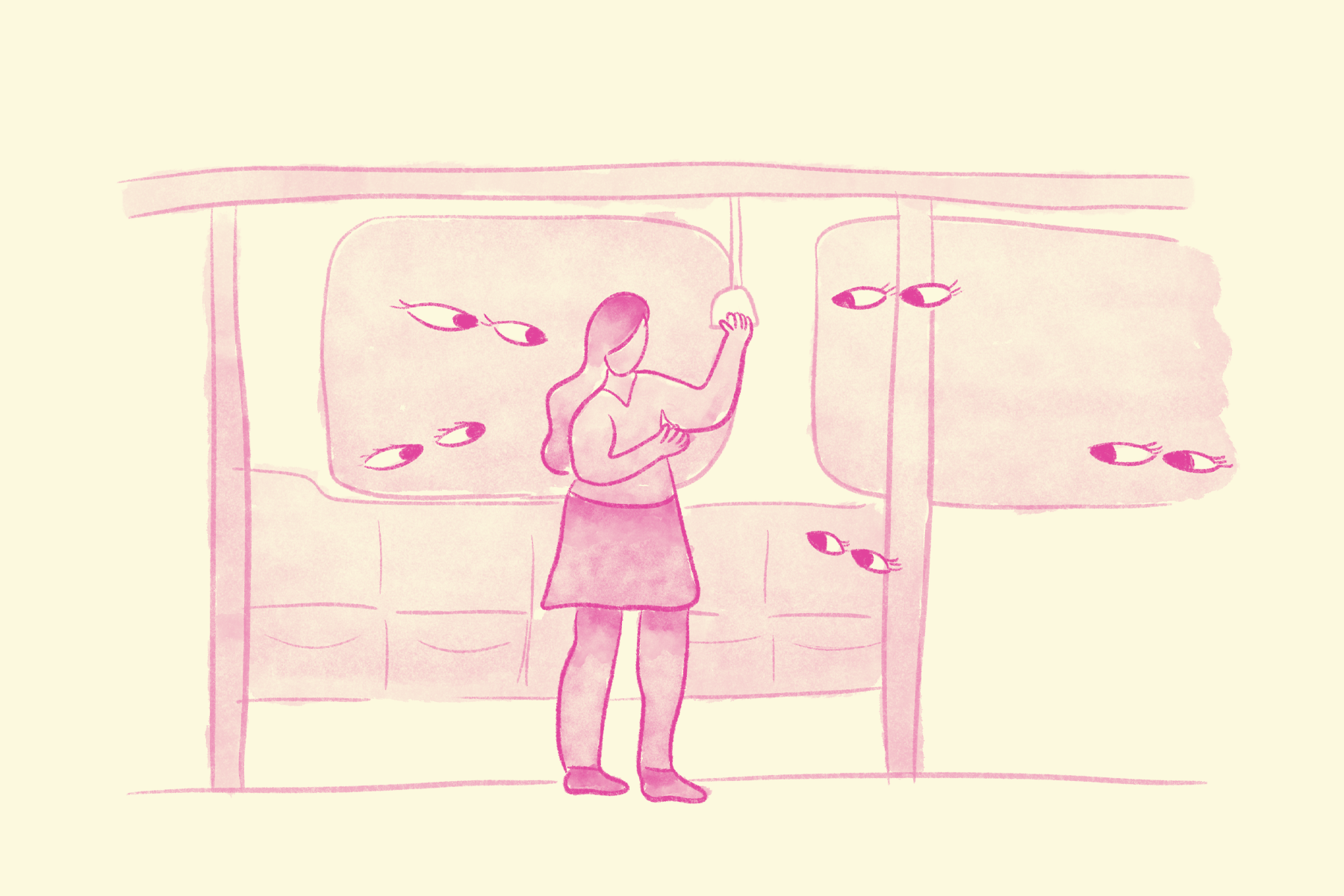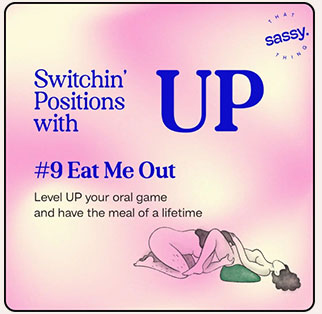Your cart is currently empty

It was an ordinary day, dawning like a sleepy cat stretching in the sun. The clock struck 7 am - and a full blown fashion frenzy struck yours truly. I ranted about how I have nothing to wear, yelled at my sister and had a mini breakdown (literally). I then paired a crop top with a jacket plus dupatta, put jeans, glitter around my eyes, lipstick and left home. All of this between 7-7:45 am, which is absolutely the latest I’ve to leave by, to reach in time for my attendance. Like I told you, a very average random day.

But something else unfolded that day. You see, my friend Anisha and I have very similar interests. We keep getting into conversations about feminism, fashion, culture and art.
“Hem (which is what all of my friends call me), how on earth do you manage to doll up every single day? I mean, who has the energy in the morning for anything beyond hitting snooze? Why put in all that effort into dressing up when you could catch a glorious extra 15 minutes of sleep?"
“I think what I wear speaks a lot about me. It’s like my clothes and my hair do all the talking, especially to those who pass me by as strangers. It’s my form of expression”
“Hmm, are you sure that’s your reason?,” she said, with her eyebrows slightly raised.
I gave her a nod. But her words, somehow, always have this sneaky way of burrowing into my thoughts, making a cozy little spot for themselves. My fingers then dance on the keyboard, as I type what I’m feeling and see if google has anything that can help me.
I stumbled upon a new term, ‘internalized male gaze.’ Now, I knew about male gaze - the cinematic and literary habit where women are often reduced to eye candy for the heterosexual male audience. But what in the world is this ‘internalized male gaze’ business? It’s when we, as women, form an imaginary male audience in our head, and that imaginary dude starts affecting the choices and decisions you make. “No”, you might say - “I have no imaginary heterosexual guy in my head telling me what to do!” Well, that's the thing about internalized male gaze, it’s so nuanced, that we don’t realize we’re doing it. We don’t register it. But it affects everything.

Who am I dressing up for? Well, of course self expression, a dash of this, a sprinkle of that. But am I? If this entire world had an all fantabulous female cast and no dudes in the front row, would I still dress up the same? Would I still have the same personality? Would I still color my hair every 2 months? Would I shave my hair - the hair under armpits, pubic hair?
Hair is one of the most important areas where internalized male gaze has firmed its roots. Heterosexual men favor ‘thick, long hair,’ deeming it a pinnacle of feminine allure. They have reinforced advertisements and movies that portray women with hairless bodies as the ideal standard of beauty. The beauty industry capitalizes on the internalized male gaze, promoting hair removal products as a means to achieve this very "ideal" feminine image, that is often designed with male preferences in mind.
Do you sense a sense of double standard here? Something as natural as body hair is deemed acceptable for guys, but not normal for women, only because the ‘sex appeal’ is associated with ‘hairless legs and genitals’? And the heartbreaking truth - we, as women, conform. We pick up razors and shave our hair. While it is absolutely okay to trim or shave for personal grooming reasons, but take a pause, look inwards - is it actually yourself or the society?

Let’s zoom in on another corner of our lives, which has taken a leading driver seat. Social media. The original intent behind Instagram, or any such apps, was to share your candid pictures - blurry sunsets, quirky coffee cups, maybe even that 'just woke up' hair. It was to share candid ideas, thoughts and moments. Then, we took a detour. Suddenly, we’re on this wild ride, molding our online personas to fit the mold of what a "desirable" woman should be.
It's like a constant spotlight, cranked up to the max. We've also got this whole toolkit at our fingertips, ready to smooth lines, brighten eyes, and blur out any imperfections. It amplifies the need to be desirable. It censors us, and not just on our physical attributes. We don’t want to be ‘too much’, so we step back from putting out thoughts that might seem assertive or challenging, especially for women. Ahem, ahem - for women. Who do you think put the ‘especially for women’ there?
It does not impact only the physical way that women carry themselves. This internalized male gaze runs deeper. How many girls dream of becoming scientists and astronauts? Okay, let me reframe the question. How many women limit their career aspirations, focusing on goals that are perceived as more attainable within traditional gender norms rather than aiming for high-level leadership positions? How many times have we heard our own mothers say, “Beta, yeh ladko ka kaam kaise karegi tu?”
Take a moment, and think about this.

A study, called the Objectification Theory throws spotlight on how employers would consider it unprofessional for a woman to not be “well-groomed”, while the rules for their male counterpart is never held to the same level of scrutiny. A woman must be impeccably groomed, while her male counterpart can have a wild hair day. Ah, the tightropes we walk.
Now, you might say - "Hey, skip the shaving routine! Speak up, let your opinions roar in the workplace!" You're absolutely right - it’s your turf, your rules, and ain’t nobody gonna rain on your parade. But, let's cozy up to a big question mark here. How free is this free choice?
If the man pulling all the strings is not outside, and is living rent free in your head, then how much of will does your heart have? It’s like a silent puppeteer, tugging at your decisions, your actions. So, sure, you're making choices, but is it your authentic self, that's really calling the shots?
The more I dive into this whirlpool of thoughts, the less surprised I am by our own little self-sabotage show. ‘Woman’ has always been viewed as an object of sexual fascination, her body has been treated as an object; a billboard for desire. Her body has become an artist’s canvas for advertising wonders. And guess where these seeds of internalized male gaze are planted? In our childhood - in the games we play, the toys we're given, and the roles we're assigned. This gaze isn't just an observer; it's a chameleon, blending into our thoughts, language, and actions. It's not a stagnant force; it moves, evolves, and takes different forms as society shifts. It echoes through generations, shaping attitudes towards gender roles, relationships.

So then, how on earth do we untangle from this web? How will we ever be able to pull ourselves out of this mess? Well, I don’t have all the answers - but I have a start. Start by questioning. Start by asking yourself, ‘is it truly my voice ringing in my ears, or is there an echo, a whisper of that elusive 'male gaze' shaping the cadence?’. That imaginary dude who’s been squatting rent-free in your thoughts? Give him the eviction notice. It might take a bit of wrangling; he might put up a fight, but remember this – you’re the boss. You hold the deed to that mental real estate, and he? Well, he’ll have no choice but to bow to your command.
-----
About the Author

Hemali (she/her) is an explorer of the realms of sexuality, intimacy, and dating. She talks endlessly about the evolving landscape of feminist narratives on the big screen and makes you reanalyze the portrayal of women in mainstream culture. If you're looking for alternative conversation starters, take your pick from: Biryani, Art Fairs, or Spoken Word Poetry.
-----












